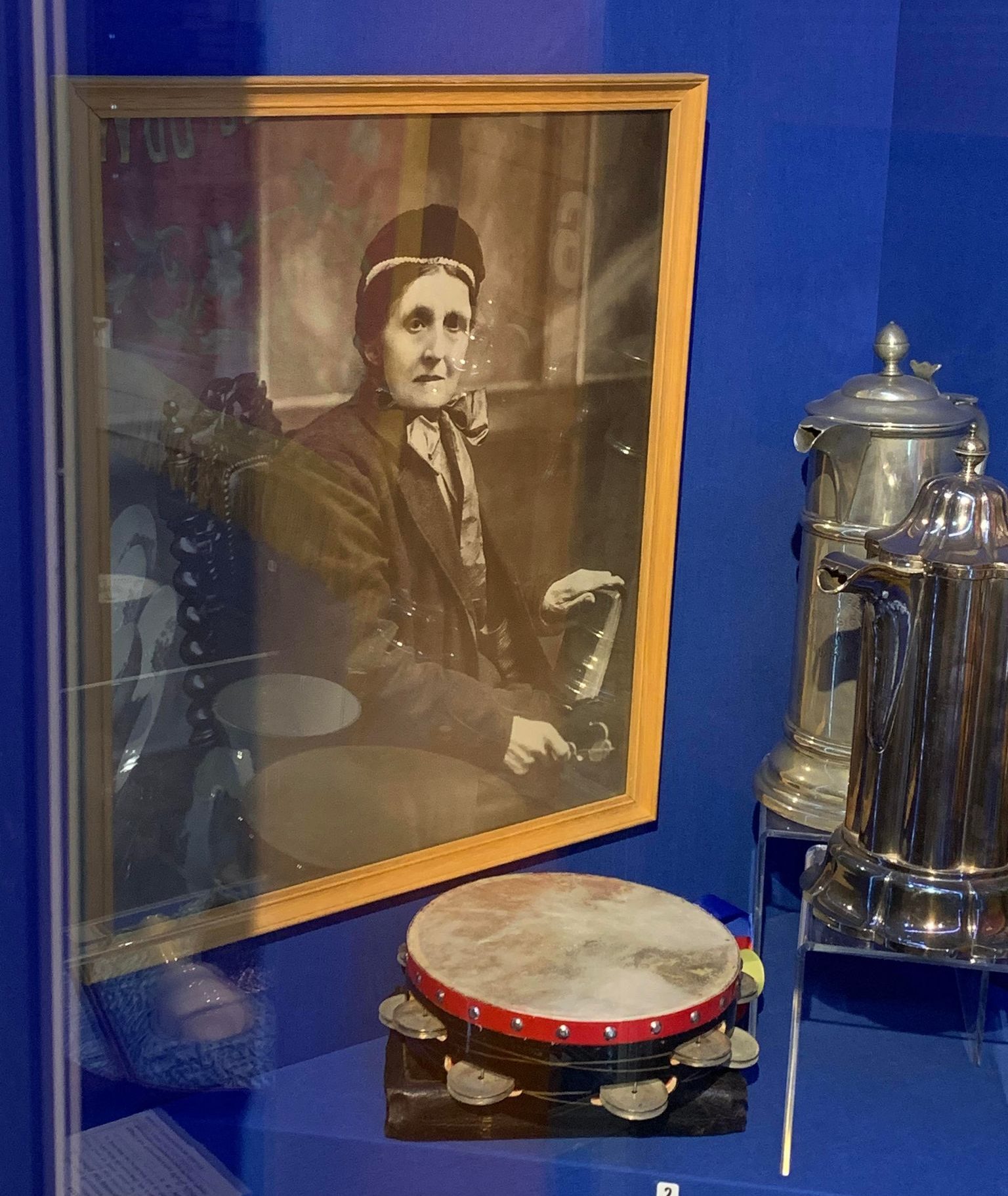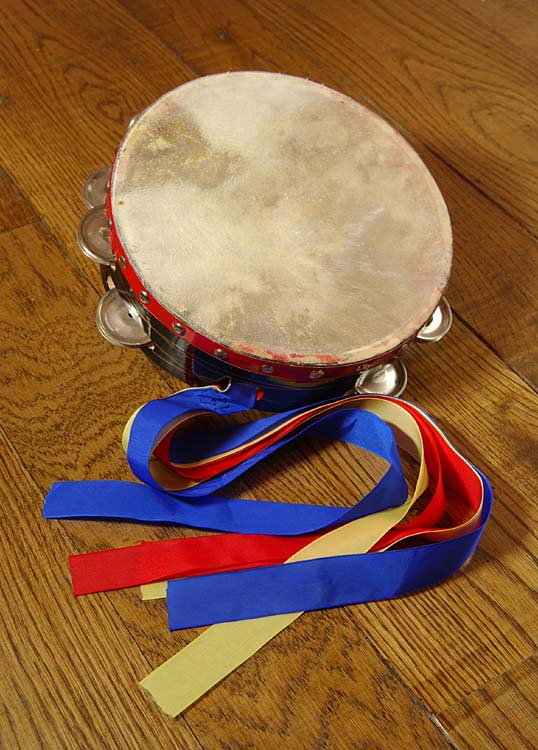
Image produced by CVMT.
International Women’s Day is 8th March each year. This is the opportunity for us to consider the contribution to the public life of a woman who had an enormous influence on the Aberdare area who has perhaps been forgotten: Pamela ‘Mother’ Shepherd 1836 – 1930, who brought the Salvation Army to the Cynon Valley.
In a corner of one of the museum’s cabinets is a photograph of an old lady with a few things alongside. It would be easy to walk past this or focus on the other more vibrant items shown in the case. This would be a mistake, for Pamela ‘Mother’ Shepherd had a fascinating role in the history of Aberdare and the wellbeing of the inhabitants spanning the nineteenth and twentieth centuries. The effects of her ministry are still felt in the valley today, not least that the Salvation Army run a sadly much needed food bank in Aberdare, among other projects.
Pamela Shepherd was born in Monmouthshire, the family moved around because her father’s involvement in the Chartist movement meant that he often lost his job. They ended up in London, where Pamela married. By her own accounts, she was brought low by drink and was ‘saved’ by contact with the Christian Mission run by William and Catherine Booth who later began the Salvation Army movement.
In 1878 she was sent to Aberdare with her children to begin a ministry for the Christian Mission. She was responsible for supporting her children for most of her marriage and they took part in her outreach work from the beginning. Using the guidelines set out by the Booths they would hire large halls for services and stand in the streets on Friday and Saturday nights attempting to preach to the unruly throngs of mostly male colliers and ironworkers that would be on their way to and from public houses. She was very successful and there are many contemporary accounts of her religious services. She had been brought up Welsh speaking and was able to deal with hecklers who thought she was English because she came from London to Aberdare.
Notably, her daughter Kate introduced the tambourine to their meetings and processions, one of which is in the Museum cabinet.

ACVMS 1996.142: The tambourine that belonged to and was used by Pamela Shepherd.
In addition, dramatically, there are reports of blasphemers being struck dead in her meetings on more than one occasion. Her dedication and hard work led to an early Christian revival in the valley, in which she was supported by the Booths themselves. She preached in many places in the valley including the Temperance Hall which still stands in Canon Street.
She left the successful mission to do the same for towns in England, returning to Aberdare in 1896. She continued to help in the wellbeing of the town, attending the courts to offer support to defendants for many years. She became the valley’s first probation officer in 1901.
Her work in the Christian revival of the early 1900s was widely reported in the press of the time. She continued in her religious work for the rest of her life, active until the end. She died in 1930 and was buried on St David’s day. Her funeral procession was attended by the police and crowds brought Aberdare to a standstill to pay their respects. She is buried in Llwydcoed cemetery.

Image 20/c/118: Grave of Pamela Shepherd, who was better known as Mother Shepherd. Image reproduced with kind permission by RCT Library and Archive Services.
Blog post written by volunteer, Sarah Bryant
Sources:
Book:
Preece, Charles (1988), Woman of the Valleys : the story of Mother Shepherd
Blog:
William Booth & Wales (2) Pamela Shepherd in Aberdare
Available from welldigger (daibach-welldigger.blogspot.com)
Webpage:
People’s collection Wales (date unknown). Pamela Shepherd (1836-1930), better known as Mother Shepherd of Aberdare Available at: Pamela Shepherd (1836-1930), better known as Mother Shepherd of Aberdare | Peoples Collection Wales accessed 8 February 2022
Rhondda Cynon Taf Libraries Digital Archives, Available at: https://archive.rctcbc.gov.uk/home




